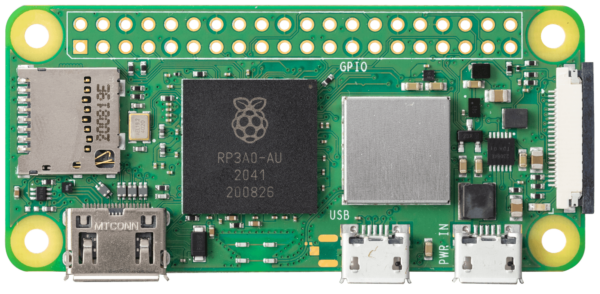Raspberry Pi, a low-cost, compact computer, has become a game-changer for tech enthusiasts, developers, and entrepreneurs around the world. In Nigeria, this powerful yet affordable tool is being used to solve real-world problems in various sectors, from road safety to agriculture. With its ability to run AI models, IoT applications, and basic programming tasks, Raspberry Pi is enabling Nigerian techpreneurs to build innovative solutions that cater to local needs.
In this article, we explore what Raspberry Pi is, how it is being used to solve pressing challenges in Nigeria, and how Nigerians can tap into its potential for developing smart technology solutions. Through real-world examples from local innovators, we highlight the impact of Raspberry Pi in improving lives and driving technological growth in the country.
What is Raspberry Pi?
Raspberry Pi is a compact yet powerful single-board computer designed for learning, teaching, and innovation. Developed by the Raspberry Pi Foundation in the UK, this low-cost device is widely used for coding, automation, artificial intelligence (AI), and Internet of Things (IoT) applications. It functions like a full-sized computer but is small enough to fit in the palm of your hand, making it ideal for tech enthusiasts, developers, and entrepreneurs looking to build cost-effective solutions.
How Raspberry Pi is Solving Problems
In Nigeria, where access to expensive computing devices and infrastructure can be a challenge, Raspberry Pi is opening up opportunities for innovation. From AI-powered safety systems to smart agricultural solutions, Nigerian developers are using this technology to address real-time problems across different industries.
1. Driver Drowsiness Detection System
Jude Nkereuwem, a 26-year-old embedded systems developer, has used Raspberry Pi to create a Driver Drowsiness Detection System. This AI-powered system monitors a driver’s eyes in real-time using a camera mounted on the dashboard. If the system detects that the driver is dozing off, it triggers a loud buzzer to wake them up, reducing the risk of road accidents.
The system also uses a pan/tilt camera mount that moves horizontally and vertically to keep the driver’s face in focus, ensuring accurate monitoring.
2. AI & IoT-Powered Smart Farming
Nkereuwem has also leveraged Raspberry Pi to train female students on how AI and IoT can improve agriculture. His team developed a smart farming system that:
- Uses sensors to monitor soil moisture, temperature, and humidity.
- Uses cameras to analyze plant health by detecting leaf color changes.
- Employs AI models to provide real-time insights to farmers.
- Connects to the internet, allowing farmers to monitor their farms remotely via a mobile app.
With this innovation, a farmer in Lagos can track crop health and environmental conditions on a farm in Ibadan without being physically present.
3. AgriSync: Smart Agriculture for Sustainability
AgriSync Solutions, co-founded by Cofie Abraham, is using Raspberry Pi to integrate IoT with Integrated Precision Agriculture (IAP) for improved farm management. Their solution collects real-time data on:
- Soil conditions (pH, moisture, temperature)
- Weather patterns (humidity, light intensity, forecasting)
- Crop health (growth monitoring and spectral analysis)
By analyzing this data, farmers receive AI-driven recommendations for better crop yields, resource optimization, and market pricing. The system also automates farm operations like irrigation and fertilization, increasing efficiency and reducing costs.
Benefits of Raspberry Pi
- Affordable & Accessible – Costs significantly less than traditional computers.
- Versatile & Customizable – Can be used for programming, AI, IoT, robotics, and automation.
- Energy-Efficient – Runs on minimal power, even with a standard 5V power bank.
- Easy to Learn & Use – Supports multiple programming languages, including Python and Scratch.
- Supports Innovation & Startups – Allows entrepreneurs to develop cost-effective tech solutions.
How Nigerians Can Plug Into Raspberry Pi
- Learn & Experiment – Take online courses or attend local Raspberry Pi training sessions.
- Join Tech Communities – Engage with Nigerian tech hubs, hackathons, and maker spaces.
- Develop & Innovate – Use Raspberry Pi for AI, IoT, and embedded system projects.
- Seek Funding & Partnerships – Leverage grants and accelerator programs to scale ideas.
The Future of Raspberry Pi in Nigeria
According to Ken Okolo, Sales Manager for the Middle East and Africa at Raspberry Pi Ltd, the company is committed to supporting the growing demand for computing platforms in Africa. With ready-built subsystems for processing, storage, and networking, Raspberry Pi continues to provide scalable solutions for developers and businesses.
As more Nigerian techpreneurs embrace Raspberry Pi, the country is poised for significant advancements in smart technology, automation, and digital transformation.
What are your thoughts on Raspberry Pi’s potential in Nigeria? Drop a comment below!
























